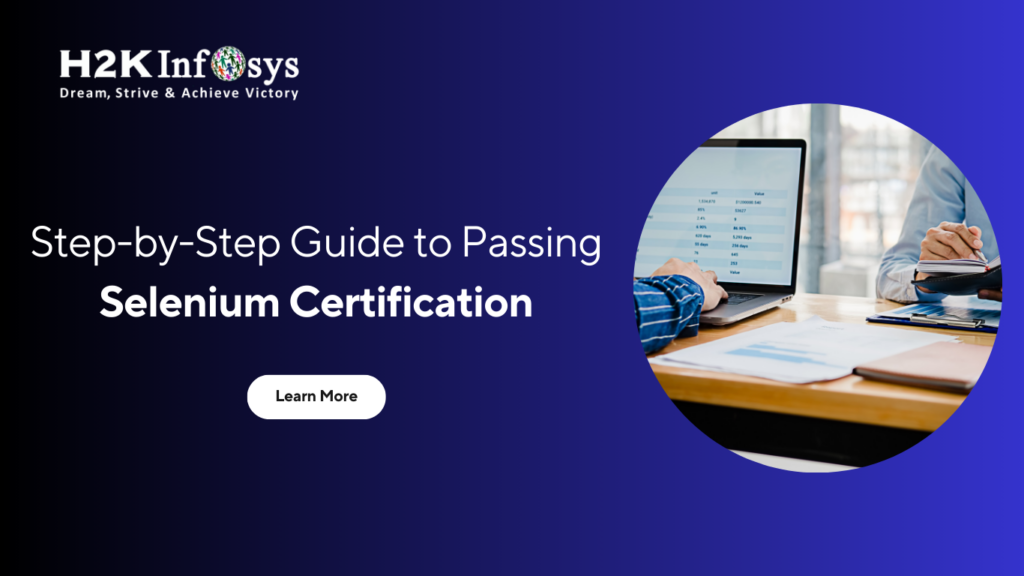In today’s data-driven world, the role of a data engineer has become critical to businesses that rely on vast amounts of data to make informed decisions. Data engineers design, construct, and maintain systems that allow businesses to process and analyze data efficiently. This role is in high demand across various industries, including tech, finance, healthcare, and e-commerce.
However, breaking into the world of Data Engineering requires more than just an interest in data. You need in-depth knowledge of big data technologies, particularly Hadoop, to stand out in interviews and land your dream job. In this blog post, we will guide you through the essentials of preparing for a data engineer interview and how training in Hadoop can help you succeed.
Why Hadoop Skills Matter for Data Engineers
When it comes to big data, Hadoop is one of the most popular and widely used technologies. Hadoop is an open-source framework that allows for the distributed processing of large datasets across clusters of computers. Understanding Hadoop is crucial for any data engineer, as it helps in storing and processing massive amounts of data that cannot be handled by traditional database management systems.
Key Hadoop components include:
- HDFS (Hadoop Distributed File System): A scalable storage solution for large datasets.
- MapReduce: A programming model used for processing large datasets in parallel.
- YARN (Yet Another Resource Negotiator): Manages resources and scheduling in the Hadoop ecosystem.
- Hive and Pig: High-level platforms for querying and analyzing data stored in Hadoop.
To crack a data engineer interview, you must demonstrate proficiency in Hadoop and related technologies. In this blog, we’ll show you how enrolling in a Hadoop training course can help you gain these critical skills and ace your interviews.
1. Understanding the Role of a Data Engineer
- Key Responsibilities: Data engineers are responsible for designing, building, and maintaining scalable data pipelines, ensuring data quality, and supporting analytics teams. They often work with big data technologies, cloud platforms, and databases.
- Skills Required: Proficiency in programming languages (Python, Java, Scala), knowledge of SQL and NoSQL databases, experience with data warehousing, and familiarity with ETL processes are essential.
2. Preparing for the Technical Interview
- Programming Skills: Brush up on your coding skills, focusing on data structures and algorithms. Platforms like LeetCode, HackerRank, and CodeSignal can help you practice.
- Database Proficiency: Be prepared to write complex SQL queries and understand database design principles. Know the differences between relational and non-relational databases and when to use each.
- Data Warehousing Concepts: Understand the fundamentals of data warehousing, including star and snowflake schemas, OLAP vs. OLTP, and ETL vs. ELT processes.
- Big Data Technologies: Familiarize yourself with tools like Hadoop, Spark, Kafka, and Flink. Understanding distributed computing and data processing frameworks is crucial.
3. System Design and Architecture
- Data Pipeline Design: Be ready to design end-to-end data pipelines, considering data ingestion, processing, and storage. Focus on scalability, fault tolerance, and data integrity.
- Cloud Platforms: Gain knowledge of cloud services like AWS, Azure, and Google Cloud. Understand services like S3, Redshift, BigQuery, and Dataflow, and know when to use them.
- Real-Time Data Processing: Understand the difference between batch and stream processing. Be familiar with technologies like Apache Kafka, Apache Flink, and Apache Storm.
4. Behavioral Interview Preparation
- STAR Method: Prepare to answer behavioral questions using the STAR (Situation, Task, Action, Result) method. This approach helps you structure your responses effectively.
- Team Collaboration: Highlight your experience working in cross-functional teams, communicating with stakeholders, and collaborating with data scientists and analysts.
- Problem-Solving: Discuss specific challenges you’ve faced in previous projects and how you resolved them. Focus on your critical thinking and problem-solving abilities.
5. Case Studies and Scenario-Based Questions
- Common Scenarios: Interviewers may present real-world scenarios, asking you to design a solution. Practice designing data architectures, choosing the right tools, and justifying your decisions.
- Optimization and Performance: Be prepared to discuss how you would optimize data pipelines, handle large-scale data, and ensure low-latency access.
6. Mock Interviews and Practice
- Peer Reviews: Conduct mock interviews with peers or mentors to get feedback on your answers and presentation.
- Online Platforms: Use online interview platforms to simulate the interview experience. Focus on time management and clarity in your explanations.
7. Post-Interview Tips
- Follow-Up: Send a thank-you email to the interviewers, expressing your appreciation for the opportunity and reiterating your interest in the position.
- Continuous Learning: Data engineering is a rapidly evolving field. Stay updated with the latest technologies, tools, and best practices.
8. Hands-On Skills:
Interviews may include coding challenges or practical tests where you need to showcase your ability to solve real-world data problems. This could involve writing MapReduce jobs, working with HDFS, or using Hive to query large datasets.
9. Problem-Solving Ability:
Data engineers often work with complex, unstructured data and need to solve problems related to data quality, scalability, and performance. Interviewers will assess how you approach problem-solving and whether you can optimize big data systems for efficiency.
How Big Data Training and Hadoop Certification Can Help
To succeed in a data engineering interview, it’s essential to be proficient in the technologies and methodologies that are commonly used in the industry. One of the most effective ways to build your skills is by enrolling in Hadoop big data courses. Here’s how training in Hadoop can help you prepare for the interview:
1. Gain Practical Experience:
Training in Hadoop gives you hands-on experience with real-world big data tools and platforms. By learning through projects, labs, and case studies, you’ll be able to apply theoretical concepts to actual data challenges.
2. Learn Core Big Data Concepts:
A well-structured Hadoop training program will cover all the core concepts, including HDFS, MapReduce, and YARN. You will also gain exposure to tools like Apache Hive, Pig, Flume, and HBase—which are essential for data engineering tasks.
3. Build Confidence for Coding Challenges:
Through comprehensive Hadoop courses, you will practice coding in MapReduce, writing SQL queries for data analysis, and building scalable data pipelines. This kind of practice is critical to confidently tackle coding challenges during interviews.
4. Stand Out with Hadoop Certifications:
Hadoop certifications add significant value to your resume and demonstrate to employers that you have the necessary skills to work with big data technologies. Obtaining a Hadoop certification will validate your knowledge and increase your chances of getting hired.
Key Topics Covered in Hadoop Courses
To ensure you’re prepared for your data engineering interview, it’s important to focus on the right topics. A comprehensive Hadoop training course will cover:
1. Introduction to Big Data
- What is big data?
- Challenges of big data processing.
- Introduction to Hadoop and the Hadoop ecosystem.
2. Hadoop Distributed File System (HDFS)
- Architecture of HDFS.
- Data storage and retrieval.
- Fault tolerance and replication.
3. MapReduce Programming Model
- Introduction to MapReduce.
- Writing MapReduce programs.
- Optimizing MapReduce performance.
4. YARN Resource Management
- Introduction to YARN.
- Resource scheduling and management.
5. Data Processing Tools
- Hive: Data warehouse system that provides SQL-like querying capabilities for large datasets.
- Pig: A high-level platform for creating MapReduce programs.
- HBase: A NoSQL database for real-time read/write access to big data.
6. Advanced Hadoop Topics
- Data integration and ETL using Apache Flume and Sqoop.
- Streaming data processing with Apache Kafka.
- Introduction to Apache Spark and its integration with Hadoop.
Real-World Applications of Hadoop for Data Engineers
Understanding how Hadoop is used in the real world is vital for your interview. Here are some examples of how companies are leveraging Hadoop:
- E-commerce: Companies like Amazon use Hadoop to process customer data, analyze buying patterns, and provide personalized recommendations.
- Healthcare: Hadoop is used for storing and analyzing patient records, medical images, and research data to improve healthcare outcomes.
- Finance: Banks and financial institutions use Hadoop to process large volumes of transaction data, detect fraud, and manage risk.
These examples not only illustrate the power of Hadoop but also demonstrate the relevance of big data technologies in solving real-world business problems. Having a solid understanding of how Hadoop fits into industry applications will set you apart during your interview.
Preparing for Your Data Engineer Interview: A Step-by-Step Guide
Step 1: Master the Basics of Hadoop
Start by gaining a solid understanding of Hadoop’s architecture, components, and use cases. Focus on mastering HDFS, MapReduce, and YARN as these are foundational elements.
Step 2: Hands-On Practice
Enroll in hands-on Hadoop big data courses that provide practical labs and projects. Set up a personal Hadoop cluster to practice processing data and writing MapReduce jobs.
Step 3: Learn Data Querying with Hive and Pig
Master tools like Hive and Pig for data querying and processing. Practice writing SQL-like queries in Hive to work with large datasets efficiently.
Step 4: Work on Real-World Projects
Join Hadoop-based projects that replicate real-world scenarios. Whether it’s building a data pipeline or analyzing logs, these projects will give you the experience you need.
Step 5: Prepare for Common Interview Questions
Familiarize yourself with common data engineering interview questions, including:
- Explain the architecture of HDFS.
- What is the difference between MapReduce and Spark?
- How would you optimize a slow-running MapReduce job?
Conclusion
Cracking the data engineer interview requires a deep understanding of big data technologies, especially Hadoop. By enrolling in Hadoop big data courses and obtaining Hadoop certifications, you can gain the knowledge, skills, and hands-on experience needed to excel in the interview process. With industry-relevant training and practical expertise, you’ll be well-equipped to tackle any data engineering challenge that comes your way.
Call to Action: Enroll in H2K Infosys Hadoop classes today to gain hands-on experience and prepare for a successful career as a data engineer!






























